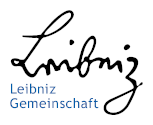- Das Institut
- Forschung
- Diktaturen im 20. Jahrhundert
- Demokratien und ihr historisches Selbstverständnis
- Transformationen in der neuesten Zeitgeschichte
- Internationale und transnationale Beziehungen
- Editionen
- Dissertationsprojekte
- Abgeschlossene Projekte
- Dokumentation Obersalzberg
- Zentrum für Holocaust-Studien
- Berliner Kolleg Kalter Krieg
- Publikationen
- Vierteljahrshefte
- Archiv
- Bibliothek
- Zentrum für Holocaust-Studien
- Aktuelles
- Termine
- Presse
- Neuerscheinungen
- Aus dem Institut
- Themen
- München 1972
- Confronting Decline
- Demokratie. Versprechen - Visionen - Vermessungen.
- Feministin, Pazifistin, Provokateurin
- Der Mauerbau als Audiowalk
- Digitale Zeitgeschichte
- Zeitgeschichte Open
- Der FC Bayern München und der Nationalsozialismus
- Das Deutsche Verkehrswesen
- Zukünfte am Ende des Kalten Krieges
- Von der Reichsbank zur Bundesbank
- Bundeskanzleramt
- Geschichte der Nachhaltigkeit(en)
- Wandel der Arbeit
- Demokratische Kultur und NS-Vergangenheit
- Geschichte der Treuhandanstalt
- Akten zur Auswärtigen Politik
- Dokumentation Obersalzberg
- Edition "Mein Kampf"
- Anonyma - Vom Tagebuch zum Bestseller
- "Man hört, man spricht"
- Newsletter
Dr. Caroline Mezger
Persönliche Daten
Abteilung
Forschung
Funktion im IfZ
Wissenschaftliche Mitarbeiterin
Standort
München
Telefon
089/411150113
Studium
Yale University, B.A. in Geschichte; Central European University (Budapest), M.A. in der Komparativen Geschichte Ostmittel- und Südosteuropas, 1500-2000

Beruflicher Werdegang
- Sommersemester 2022: Wissenschaftliche Mitarbeiterin/Lehrbeauftragte am Lehrstuhl für Neueste Geschichte der Ludwig-Maximilians-Universität München
- Seit 2020: Dozentin bei studium plus der Universität der Bundeswehr München
- Seit Juni 2019: Group Leader, INFOCOM-Projekt, Institut für Zeitgeschichte München
- Januar 2017-Mai 2019: Wissenschaftliche Mitarbeiterin im Zentrum für Holocaust-Studien, Institut für Zeitgeschichte München
- 2016 Promotion in Geschichte am Europäischen Hochschulinstitut (Florenz, Italien)
Sonstiges
Forschungsschwerpunkte:
Geschichte des Zweiten Weltkrieges und des Holocaust in Südosteuropa; Nationalitätenpolitik in multiethnischen Grenzgebieten; deutschsprachige Minderheiten in Mittel- und Südosteuropa; Geschichte der Kindheit und der Jugend; Migration; Oral History; Kommunikation.
Forschungsprojekte
- Gerücht und Displacement: Eine Geschichte der (Zwangs-) Migration unter dem "Dritten Reich", 1938-1948
- Paths of Experience, Ways of Remembrance: The Holocaust in Vojvodina from the Perspective of Jewish Victims and Ethnic German Expellees (Working Title)
IfZ-Publikationen
Publikationen
Monografien
Herausgeberschaften
- "The Holocaust in the Borderlands: Interethnic Relations and the Dynamics of Violence in Occupied Eastern Europe," edited by Gaëlle Fisher and Caroline Mezger, European Holocaust Studies, Vol. 2 (2019) .
Aufsätze
- "Rumor and Wartime Migration: Informal Communication, Propaganda, and the 1939 'Option' in South Tyrol," The Journal of Modern History (forthcoming).
- ”From Hitler’s Disciple to Wartime Refugee: Donauschwaben World War II Childhoods and the Crossroads of Historical Agency,“ East Central Europe, Vol. 48, No. 1 (2021): pp. 50–72.
- „Man hört, man spricht“: Informelle Kommunikation und Information „von unten“ im nationalsozialistischen Europa. Ein neues Forschungsprojekt des Instituts für Zeitgeschichte München‒Berlin," Vierteljahrshefte für Zeitgeschichte, Vol. 68, No. 3 (2020): 481-490.
- "The 1944 Crvenka Massacre and the Potentials of Postwar Testimony," Holocaust Studies: A Journal of Culture and History (2019), DOI: https://doi.org/10.1080/17504902.2019.1678954
- “Zwischen Habsburgermonarchie und Nationalsozialismus: Donauschwäbische Minderheitenschulen im 19. und 20. Jahrhundert,” Die mittel-osteuropäischen Nationalstaaten nach 1918: Transformationen nach dem Zusammenbruch der Kaiserreiche, ed. Rainer Bendel (Münster: LIT-Verlag, 2019), pp. 217-262.
- "Introduction - The Holocaust in the Borderlands: Interethnic Relations and the Dynamics of Violence in Occupied Eastern Europe" (with Gaëlle Fisher), European Holocaust Studies, Vol. 2 (2019), pp. 9-34.
- “Vom Hitler-Anhänger zum Kriegsflüchtling: Donauschwäbische Kindheitserfahrungen und die Scheidewege der historischen Handlungsfähigkeit,” Kindheiten im Zweiten Weltkrieg, ed. Francesca Weil, André Postert and Alfons Kenkmann (Halle/Saale: Mitteldeutscher Verlag, 2018), pp. 297-317.
- “Entangled Utopias: The Nazi Mobilization of Ethnic German Youths in the Batschka, 1930s-1944,” Journal of the History of Childhood and Youth, Johns Hopkins University Press, Vol. 9, No. 1 (Winter 2016), pp. 87-117.
- “‘Denn du bist die Zukunft deines Volkes’: Youth, Nation, and the Nazi Mobilization of Southeastern Europe’s Donauschwaben, 1930s-1944,” Nationalsozialismus und Regionalbewusstsein im östlichen Europa. Ideologie, Machtausbau, Beharrung, ed. Burkhard Olschowsky and Ingo Loose (Munich: De Gruyter Oldenbourg, 2016), pp. 105-126.
Rezensionen
- Review of Rebecca Clifford, Survivors: Children’s Lives After the Holocaust, The American Historical Review [forthcoming]
- Review of Nathan N. Orgill, Rumors of the Great War: The British Press and Anglo-German Relations during the July Crisis, Fracia-Recensio, No. 1 (2021): DOI: https://doi.org/10.11588/frrec.2021.1.80278.
- Review of Bernd Robionek, Ethnische Ökonomie im politischen Spannungsfeld. Das deutsche Genossenschaftswesen in der Vojvodina (1922–41), Central European History, No. 2, Vol. 54 (2021): pp. 399–402.
- Review of Ernö Munkácsi, How It Happened. Documenting the Tragedy of Hungarian Jewry, ed. Nina Munk, History: The Journal of the Historical Association, Vol. 105, No. 365 (2020): 359-361, DOI: https://doi.org/10.1111/1468-229X.12958.
- Review of Nazism Across Borders. The Social Policies of the Third Reich and their Global Appeal, ed. Sandrine Kott and Kiran Klaus Patel, 20 & 21. Revue d'histoire, Vol. 146, No. 2 (2020): pp. 215-216.
- Review of Waitman Wade Beorn, The Holocaust in Eastern Europe: At the Epicenter of the Final Solution, German History, Vol. 69 (2018), DOI: https://doi.org/10.1093/gerhis/ghy069.
- Review of Mirna Zakić, Ethnic Germans and National Socialism in Yugoslavia in World War II, The Journal of Modern History, Vol. 90, No. 3 (2018): pp. 739-740.
- Rezension von Microhistories of the Holocaust, ed. Claire Zalc and Tal Bruttmann, Francia-Recensio, Vol. 3 (2017): DOI: https://doi.org/10.11588/frrec.2017.3.41525.
- Review of Reverberations of Nazi Violence in Germany and Beyond: Disturbing Pasts, ed. Stephanie Bird, Mary Fulbrook, Julia Wagner, and Christiane Wienand, European Review of History, Vol. 24, No. 3 (2017): pp. 487-489.
- Review of Philipp Ther, The Dark Side of Nation-States: Ethnic Cleansing in Modern Europe, European Review of History, Vol. 23, No. 1-2 (2016): pp. 256-258.
- Review of Ioannis Stefanidis, Substitute for Power: Wartime British Propaganda to the Balkans, 1939-1944, European Review of History, Vol. 21, No. 1 (2014): pp. 137-139.
Übersetzungen
- Translation of Werner Conze, “Beginn und Entfaltung im Mittelalter: Die Bildung Ostmitteleuropas durch die römisch-christliche Mission” [“Beginning and Unfolding during the Middle Ages: The Formation of East-Central Europe through the Roman Christian Mission”], Comparative and Transnational History in Western and Eastern Europe: Legacies and New Perspectives (Budapest: CEU Press, forthcoming 2019).
- Translation of Matthias Middell, “Kulturtransfer und historische Komparatistik—Thesen zu ihrem Verhältnis” [“Cultural Transfer and Historical Comparison—Theses Concerning their Relationship”], Comparative and Transnational History in Western and Eastern Europe: Legacies and New Perspectives (Budapest: CEU Press, forthcoming 2019).
Diverses
- "Workshop Report: Informal Communication in Occupied Societies,” Occupation Studies Research Network Blog (9.1.2023): https://fasos-research.nl/occupationstudies/workshop-report-informal-communication-in-occupied-societies/.
- Tagungsbericht, "Raub jüdischen Eigentums in Jugoslawien 1940-1945", 8.2.2019 Berlin, in: H-Soz-Kult, 14.03.2019, <www.hsozkult.de/conferencereport/id/tagungsberichte-8175>.
- "Reiner Frigyes Park: A Reflection on Current Events in Hungary," Baltic Worlds, Issue 4 (2018): 34-36.
- Sektionsbericht Historikertag 2018, "The Politics of Citizenship: Enemy Aliens, Citizenship Classification, and the Division of Societies in Twentieth-Century Germany, the Netherlands, and Europe", mit Gaëlle Fisher, H-Soz-Kult, 21.12.2018, http://www.hsozkult.de/conferencereport/id/tagungsberichte-8020
- “70 Years of the Historical Archive Zrenjanin,” СПОМЕНИЦА ИСТОРИЈСКОГ АРХИВА ЗРЕЊАНИН 1947–2017 [“Remembering the Historical Archive of Zrenjanin 1947-2017”], ed. Filip Krčmar (Zrenjanin: Historical Archive Zrenjanin, 2017), pp. 379-380.
Medien
- Interview with Kristel le Pollotec for Radio France Culture, “Hiver 43, la victoire change de camp,” Episode 4: “La shoah” (26.1.2023): https://www.radiofrance.fr/franceculture/podcasts/lsd-la-serie-documentaire/occupations-et-resistances-6052704.
- Interview with Kristel le Pollotec for Radio France Culture, “Hiver 43, la victoire change de camp,” Episode 1: “Occupations et résistances” (23.1.2023): https://www.radiofrance.fr/franceculture/podcasts/lsd-la-serie-documentaire/la-shoah-8901551.
- Interview with Jill Massino on Forging Germans for the New Books Network, podcast (28.3.2022): https://newbooksnetwork.com/forging-germans.
- Interview with Lucija Balikić, “Youth and the Politicization of Germanness in Interwar Yugoslavia,” The Review of Democracy, CEU Democracy Institute, podcast (18.3.2022): https://democracyinstitute.ceu.edu/articles/youth-and-politicization-germanness-interwar-yugoslavia.
- “Caroline Mezger’s Forging Germans,” The Page 99 Test, blog by Marshal Zeringue of The Campaign for the American Reader (2.6.2020): https://page99test.blogspot.com/2020/06/caroline-mezgers-forging-germans.html.
Zurück zur vorherigen Seite





